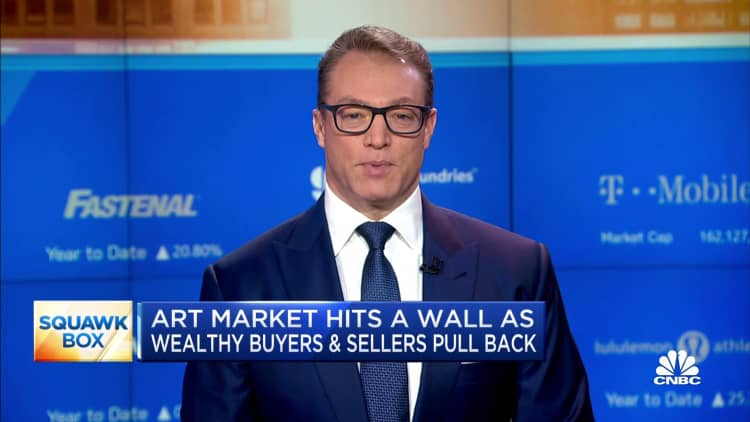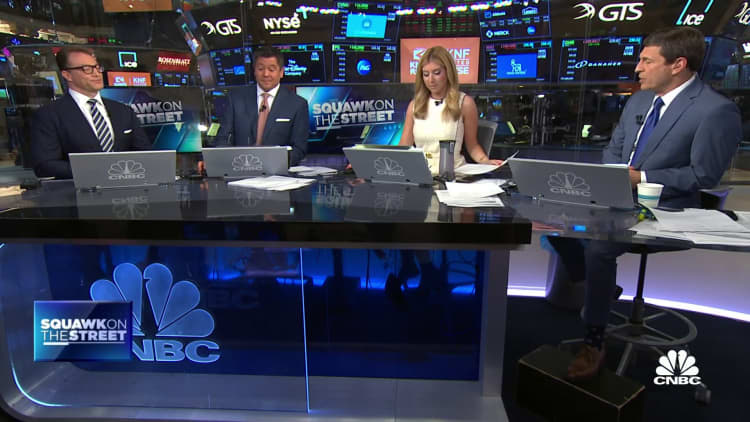Fg Trade | E+ | Getty Images
More investors are getting access to investments previously earmarked for the wealthiest members of society — but it may be risky for some to participate, experts said.
Private investments — such as private equity funds, hedge funds, venture capital funds and stock in early stage companies — typically require investors to be “accredited.”
Generally, that means investors must have a certain income or household wealth to participate. Criteria include earned income of at least $200,000 a year for a single individual or at least $300,000 with a spouse, or a $1 million net worth, alone or with a spouse.
Such rules are meant to protect against the “unique risks” of private investments relative to public stocks and mutual funds, according to the Securities and Exchange Commission. For example, private investments may have fewer disclosures for investors. Accredited investors are seen as more financially sophisticated and able to sustain the risk of loss, the SEC said.
More from Personal Finance:
How to use ETFs in your portfolio
More part-timers to get access to company retirement plans
You could owe 0% capital gains tax for cryptocurrency in 2023
Why more people may meet accredited criteria
But there’s a problem, according to investor advocates: The financial thresholds to become an accredited investor aren’t indexed to inflation; they haven’t changed in decades. As a result, the protective bar of “accredited” status has been diluted as wealth and incomes have naturally increased over time.
In 1983, “accredited” status was reserved for the richest households — roughly the top 1% to 2%, according to the SEC. However, 13% — about 16 million total households — qualified in 2019.

That expansion lets some middle- and upper-middle-class households into the fold — but many may not have the risk capacity or financial savvy to invest in private markets, said Micah Hauptman, director of investor protection at the Consumer Federation of America, a consumer advocacy group.
If it had been indexed to inflation since 1983, the threshold to be an accredited investor would be $629,000 of earned income for individuals, or a combined $3.1 million net worth today.
“A $1 million net worth doesn’t mean that much these days,” said Charles Failla, a certified financial planner and founder of Sovereign Financial Group. “You don’t have to be that sophisticated an investor to be in your 70s and have $1 million.”
The risks and rewards of private investments
Private investments are, as their name suggests, different from their publicly offered counterparts.
Anyone can generally buy the stock of public companies on a stock exchange, or buy pools of stocks or bonds via publicly available mutual funds and exchange-traded funds. By comparison, private investments let people invest in companies that aren’t listed on a public exchange.
Even investing in, or possibly lending to, a friend’s or family member’s private startup may require accreditation, said Cassandra Borchers, a partner at law firm Thompson Hine.
Nonaccredited investors can invest in private start-ups via crowdfunding campaigns. However, there are limits on how much they can invest — generally up to 5% or 10% of their net worth — unlike with accredited investors.
A $1 million net worth doesn’t mean that much these days. You don’t have to be that sophisticated an investor to be in your 70s and have $1 million.
Charles Failla
founder of Sovereign Financial Group
The allure of private investments is they often “just have better returns” than their public counterparts, Borchers said. This is why she thinks it’s generally a good thing more people have gained access.
Private equity returns, for example, have outperformed the S&P 500 stock index by 1% to 5% on an annualized basis since 2009, according to a 2021 report by Michael Cembalest, chair of market and investment strategy for J.P. Morgan Asset & Wealth Management.
Mike Curtis, 58, an accredited investor based in Honolulu, Hawaii, has invested in more than a dozen private companies in the past 15 years. One he’s especially fond of: an investment in Shaka Tea, which earned him a profit of at least 400%, he said.
Julio Estela, 41, who lives in Wantagh, New York, made his largest private investment in 2021, in Green Coffee Company. Estela, an accountant and director of people at the insurer Lemonade, estimates he’s made a 60% to 70% return on his money since then.
Curtis and Estela declined to disclose the value of their respective investments.

But Curtis and Estela have also had some losers.
For example, one of Curtis’ failed ventures aimed to recycle wooden shipping pallets that arrived in Hawaii by rehabbing and putting them back into circulation.
“It was a neat idea,” said Curtis, managing director of finance at Elemental Excelerator, a nonprofit that invests in climate-focused startups. “We probably hadn’t researched it as thoroughly as we needed to, and it ended up going south.”
Why private markets are ‘two-tiered’
Hxyume | E+ | Getty Images
Some of the largest U.S. investors, such as pension funds, often have some exposure to private investments, proponents say. For example, 89% of public pension plans have private equity investments, which account for 11% of their total assets, according to a 2022 study of 176 plans conducted by the American Investment Council, a trade group. Public stock accounts for 46% of the plans’ assets.
However, private markets are “two-tiered,” said Hauptman of the Consumer Federation of America.
Mom-and-pop investors don’t get access to the best deals, which are often reserved for institutional investors such as pensions, Hauptman said. Pensions also generally have teams of consultants who specialize in evaluating the merits of private companies and funds — something most average investors can’t easily do, he added.
“I really think … people need to start with their 401(k), invest in [mutual] funds, learn the basics,” said Curtis, the accredited investor. “Investing in private companies is more of a graduate-level course. You don’t start without the prerequisite.”

Private investments also have a wider “dispersion” of returns than public markets. That means the range of investment outcomes, from high to low, is wider.
For example, from 2005-2019, private equity funds had a 21% average dispersion, as measured from the 5th percentile to the median fund return; by contrast, publicly traded stock pools had a dispersion of 3% or less, according to a 2021 SEC report, which cited data from Cambridge Associates.
As with public stock, betting on one private investment instead of pooling risk in a fund of many private companies is an even riskier strategy, experts said.
“If we’re talking about a startup, they have great rates of return when they work, but pretty horrible rates of return when they don’t,” Failla said. “It’s by nature a much higher risk potential and a much higher return potential, arguably,” he added.
What to know if you’re buying private investments
What this all means: Only invest the amount of money you’re willing to lose in private companies, Hauptman said.
Only invest in industries with which you’re familiar, he said. Investors should ask themselves: Do I have access to information — such as company financials, its business plan and its standing in the competitive marketplace — to determine if this is a viable business and is likely to succeed?
Often, mutual funds and ETFs are a better long-term approach for most people, Hauptman added.
“I know there are a lot of shiny objects. Sometimes it’s private investments, sometimes it’s crypto,” he said. “[But] slow and steady wins the race.”
 EU News Digest Latest News & Updates
EU News Digest Latest News & Updates



